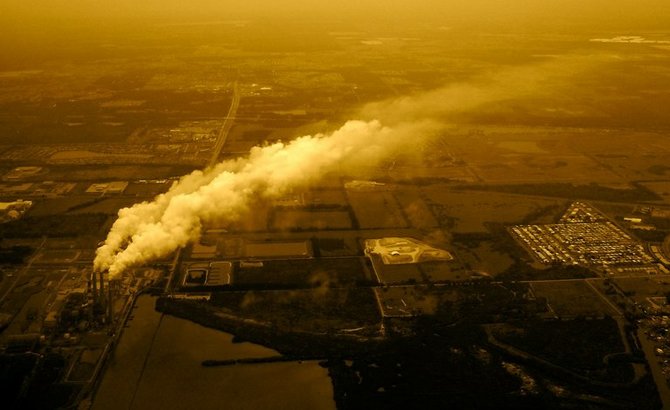Scientists at Princeton, Stanford, Peking and Columbia universities as well as the National Oceanic and Atmospheric Administration conclude that climate change will worsen air pollution, making it a more potent killer this century. Photo by Courtesy Flickr/Evanna Chung
This story appeared on The Daily Climate.
You'll find no shortage of air pollution stories on our sister site, Environmental Health News. But the link between air pollution and climate change is infrequently reported.
There's little excuse for that any more.
Start with the World Bank. On Tuesday Reuters correspondent Alister Doyle reported that the international aid organization planned "aggressive action" to help developing nations curb soot and other air pollutants blamed both for climate change and human health ailments.
Then The Atlantic on Wednesday reported that China would invest $275 billion—an amount equal to Hong Kong's gross domestic product—over the next five years in a fight to clean the country's notoriously hazy air. That's not enough for many residents, Gabrielle Jaffe reported: Companies large and small are hawking air filters, air-filtering plants and face masks to an increasingly alarmed population.
Their concern is justified. And the problem is only going to get worse, according to research published last month in the journal Climatic Change.
Scientists at Princeton, Stanford, Peking and Columbia universities as well as the National Oceanic and Atmospheric Administration conclude that climate change will worsen air pollution, making it a more potent killer this century.
Using model simulations, the research team found that climate change will exacerbate air pollution and its associated health effects globally. The impacts are especially keen in heavily populated—and polluted—regions of East and South Asia and North America.
The increased health risks, they found, are largely driven by an increase in fine particulate matter, or soot. Weaker cyclones and more stagnation expected over the northeastern United States under future climate conditions increase levels of unhealthy ground-level ozone in the region.
The consequences for human health are stark, the researchers noted.
Soot is associated with respiratory illness, heart attacks, cancer and premature death. Ground-level ozone, or smog, aggravates asthma, irritates the lungs, and reduces lung function. Long-term exposure significantly raises the risk of dying from lung disease.
If pollution levels remain constant, researchers said, deaths attributed to soot will jump globally by 100,000 people over the 21st century. Meanwhile the years of life lost as a result of premature death due to both smog and soot would increase by nearly 900,000 years.
There's a silver lining to this. Reducing soot—from power plants, wood-fired stoves, diesel engines—is seen as one of the quickest ways to stem global warming. Cutting such "short-term" pollutants (named because they do not stay in the atmosphere as long as carbon dioxide) could reduce warming by up to about 0.5 degrees Celsius (0.9º Fahrenheit), scientists say.
That would put the world a good ways down the path of limiting global temperature rise to below 2ºC, a goal set by almost 200 nations including the United States in the wake of the United Nations' Copenhagen climate talks in 2009.
And it would have us all breathing a little easier.


